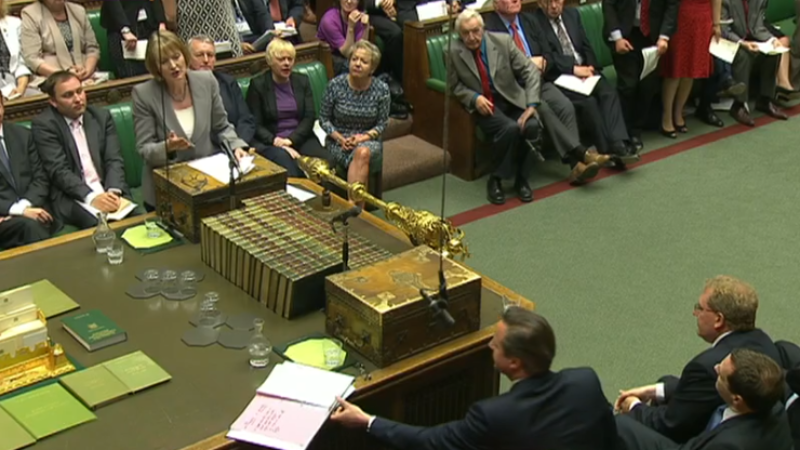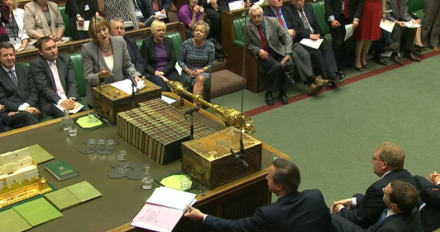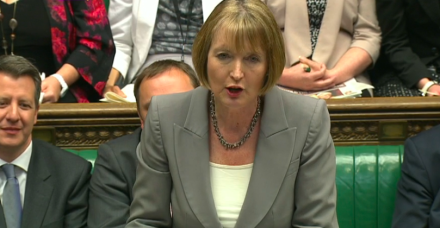

New leaders often pledge to end the “Punch and Judy politics” of Prime Minister’s Questions; even David Cameron did it once. It never lasts long, of course. The allure of landing a partisan blow and it getting replayed on the News at Ten, or have have broadsheet columnists commend a “win” is all too much, and with the backing of a couple of hundred of MPs cheering behind them, normality soon returns.
With that in mind, it may not be worth reading all too much into today’s ‘contest’. Harriet Harman, in her second stint against Cameron at the despatch box, carried a less abrasive tone than is usual, and Labour MPs generally followed suit. Is there, perhaps, not much of an appetite within the PLP for the usual hubbub of noise?
“He doesn’t need to do the ranting and sneering and gloating,” Harman remarked of the Tory leader early in proceedings. “Frankly he should show a bit more class.”

To an extent, it worked. Certainly, the caustic put-downs that would often floor Miliband on Wednesday lunchtimes did not seem appropriate against Harman, who would simply respond by rolling her eyes and telling him again that there was no need for his “gloating”. The PM failed to score political points on any of his prepared remarks – one gag about Labour’s new referendum position, that it was the “biggest mass conversion since that Chinese general baptised his troops with a hosepipe”, was surely one of the most bizarrely obscure jokes to enter Hansard.
Feng Yuxiang, if you were wondering, by the way.
While the style made Harman appear more like an opposition leader doing their constitutional duty of holding the Government to account, there are downsides to it. There are still huge problems with Labour’s EU referendum position. Pushing so hard for votes at 16 in the referendum makes the party look like it is reluctantly accepting to go along with a popular policy, while demanding an unpopular policy is attached to it, makes very little strategic sense. It has the feel of a party that is not really sure what else it can say.
The same applies for obsessing over the date of the referendum. Harman repeated the advice from the Electoral Commission that the vote should not take place on the same date as any local or devolved authority elections. While it is certainly a role of the official opposition to raise points like this, Labour should be wary that they appear to be finding problems with the referendum that no one really cares about.
On whether purdah should be suspended for the referendum, there was a bit more of a feeling that Harman was ‘playing politics’, although subtly. While again, it is not something many people care about, there is one group who certainly does: Eurosceptic Tories. If Labour continue to raise the issue, that will be the reason why.
The SNP MPs, too, took a more orderly approach, and the failure of any opposition party to sink to normal Commons’ behaviour showed Cameron up. He is simply not prepared for a PMQs like this, and neither are his raucous backbenchers, still giddy from an unexpected victory.
Exchanges like today cannot last forever, and “Punch and Judy politics” will soon return. It always does. But Labour supporters can take some pleasure knowing that Cameron, the unlikely election victor, did not win today – because no one else was playing the game.




More from LabourList
‘Unity or division’: Starmer’s message to voters in Gorton and Denton
Almost half of Labour members oppose plans to restrict jury trials, poll finds
‘How Labour can finally fix Britain’s 5G problem’